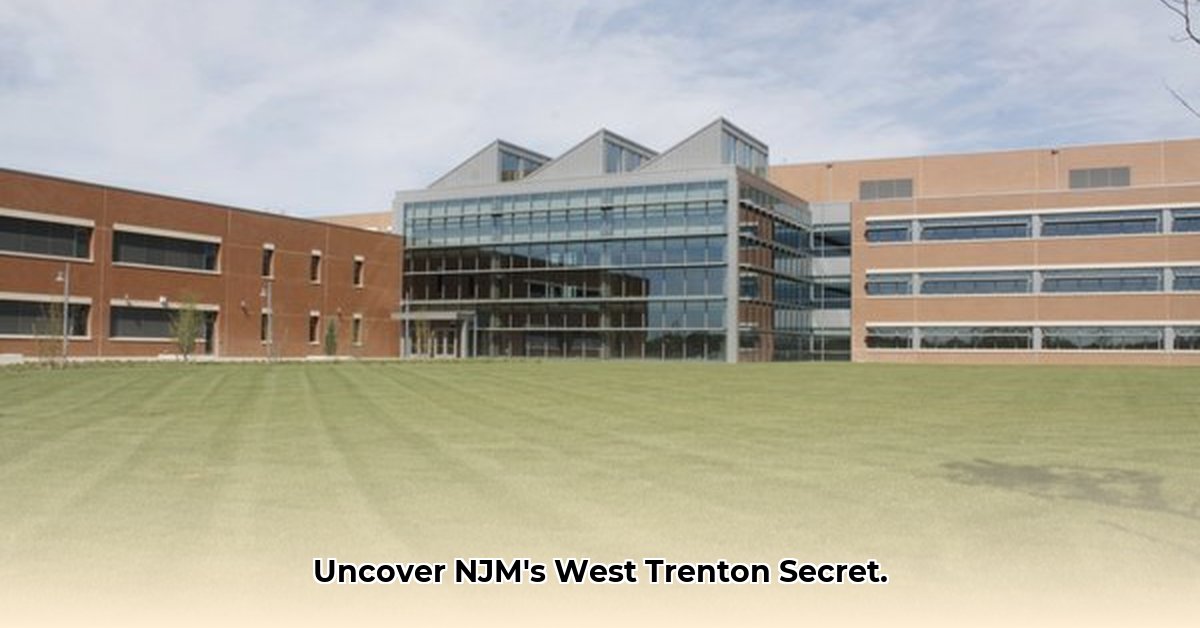
301 Sullivan Way West Trenton, NJ: The Heart of NJM Insurance
301 Sullivan Way in West Trenton, New Jersey, serves as the headquarters of NJM Insurance Group, a significant insurer in the state. This location is central to NJM's operations, housing a substantial portion of its workforce and acting as the core of its business activities. Understanding the role of this facility is key to understanding NJM's overall strategy and impact on New Jersey.
NJM's Operations at 301 Sullivan Way: A Closer Look
NJM Insurance operates as a mutual company, meaning its policyholders are its owners. This structure influences its business model and approach to its customers. 301 Sullivan Way houses the core administrative functions of NJM. This includes executive offices, claims processing, underwriting, and various support staff. While specific day-to-day operations aren't publicly detailed, it's clear that the majority of key decision-making and policy execution originates from this location. The building likely reverberates with the constant activity of managing insurance policies and responding to customer needs. How many employees work at this location? Further research into NJM's public filings could clarify this.
NJM's Strategic New Jersey Focus
NJM's concentration of offices in New Jersey—including locations in Parsippany and Hammonton—suggests a strategic focus on maintaining close proximity to its customer base. This geographic concentration likely enhances response times to claims and strengthens community engagement. This localized approach facilitates personalized service and builds stronger relationships with New Jersey residents. However, this localized strategy may also limit NJM's national expansion potential and ability to compete on a broader scale. Data on market share and growth plans would help quantify NJM’s success with this approach. A crucial question arises: Is NJM satisfied with its dominance in New Jersey, or are there plans for significant national expansion?
NJM's Future: Adapting to the Evolving Insurance Landscape
NJM's future success depends on its ability to navigate the dynamic insurance market. This requires staying competitive, innovating its operational efficiency, and potentially expanding its service area beyond New Jersey. The rapid technological advancements in insurance suggest a significant need for adaptation.
To thoroughly analyze NJM's trajectory, further investigation is necessary. Here are key areas warranting deeper analysis:
- Market Share: Determining NJM's precise market share in New Jersey will provide a clearer picture of its competitive standing.
- Operational Efficiency: Examining NJM's claim processing speed and customer service efficiency reveals the effectiveness of its internal processes.
- Customer Satisfaction: Assessing customer satisfaction metrics offers insight into the effectiveness of NJM's service and overall business model.
- Technological Adoption: Analyzing NJM's investment in technology and digital transformation strategies will demonstrate its readiness to meet future industry challenges.
Comparing NJM to Competitors in New Jersey
NJM's competitive landscape includes other major players. Analyzing pricing structures, coverage options, and customer service reviews offers a comprehensive comparison. While initial data suggests NJM often offers lower premiums than competitors like Amica Mutual, detailed policy comparisons are crucial. Remember, the lowest premium doesn't always equate to the best value. Consider factors like claim handling efficiency and policy comprehensiveness. Utilizing online insurance comparison tools allows for a streamlined, efficient comparison process.
Conclusion: 301 Sullivan Way and NJM's New Jersey Impact
301 Sullivan Way isn't just an address; it represents NJM's core operations and its commitment to the New Jersey market. Further research into the areas outlined above will provide a more complete understanding of NJM's overall strategy, market position, and future outlook. The story of NJM Insurance is one of ongoing evolution within a rapidly changing industry.